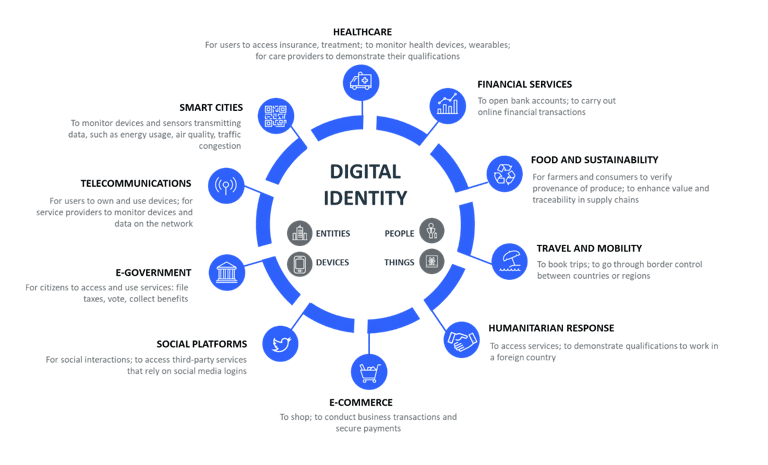Say NO to centralized exchanges! Start using Vexl instead. pic.twitter.com/4vGW6vcfCC
— vexl 😎 (@vexl) June 20, 2023
A
A
Interview with a Cypherpunk
Sat 16 Mar 2024 ▪
13
min read ▪ by
Getting informed
▪
Decentralized Exchange (DEX)
In his 1993 Cypherpunk Manifesto, Eric Hughes declared that “in the electronic age, the right to privacy is an essential element of a free and open society. Privacy means being free to reveal oneself selectively to the world. Cypherpunks defend privacy through cryptography, digital signatures and electronic money.”

Cointribune interviewed one of them, in the heart of Bohemia. Lea Petrasova is co-founder and CEO of Vexl, a KYC-free application for exchanging bitcoins P2P. « As intended », as she likes to say. The other co-founders are Pavol Rusnak and Marek Palatinus, inventors of the first hardware wallet : Trezor.
Hi Lea, what does « Vexl » mean ?
“Vexl” is a wordplay on the German term “wechseln”, meaning “to exchange.”
See, during the USSR era, every Soviet satellite state had a network of proxy merchants—dealers of various scarce commodities from the West, primarily currencies. In Czechia, they often frequented parking lots near the German border, earning the name “vekslaks” among population.
The name “Vexl” pays homage to these agents of the grey economy who traded superior goods or currencies. With Vexl, you can engage in a similar trade, but using Bitcoin.
Very telling. We will touch on totalitarism later on. But before that, let’s talk about the app. What are you most proud of?
Besides an amazing UX, our reputation model would certainly stand out. When using Vexl, you are always trading within your real-world social circle, yet in a very privacy-aware way. We have managed to incorporate a real-world reputation into an app!
Consider this achievement – it’s remarkable. As this reputation is impossible to manipulate, everyone is encouraged to behave well during the transaction.
So it only shows offers from our friends and their friends. Two circles. Correct ? How does it work ?
Yes, you can view the offers from your contacts and their contacts.
We spent a significant amount of time contemplating how to build such a social network and realized that launching a completely new one is incredibly challenging. That’s why we decided to build on top of an existing one. But which one to choose?
We sought a platform that is universally widespread and used by people worldwide. Additionally, for our reputation model, credibility is essential, meaning that participants should have at least some level of personal familiarity.
Moreover, we needed a platform that is not going away any time soon, prevalent in the East, West, South, and everywhere in between. Phone numbers and contact lists were the obvious choice.
What about the privacy side of things ?
It’s important to acknowledge the risks associated with phone numbers, so we dedicated a significant amount of time to researching strategies to mitigate them. I am very proud of our solution.
On our end, in the backend, we divided the app into four parts: one manages your account, the second manages your contact list, the third handles the offers, and the fourth manages the chats.
These four parts operate independently and only converge on your device. Through asymmetric cryptography and this setup, it is technologically impossible for us to access the activities on the platform. We’re fully open source, check for yourself.
We cannot learn the content of the offers, whether you’ve posted one, if you’ve communicated with someone, or if any trade has ever occurred.
So, it’s a free zk encrypted app with no KYC. What else distinguishes you from your competitors like Hold Hold ?
Vexl is purely peer to peer. There is no escrow, no fees, no Bitcoin needed in order to be able to join. We are not a for-profit company but rather a people-connecting platform, designed in a way that preserves our users’ privacy.
And speaking of design, I really take a lot of pride in our UX. When we were designing Vexl, I was always asking myself: would my aunt be able to use this easily? That’s how the interface was born. I think it’s incomparably more user-friendly than any other platform out there.
Vexl never touches money, be it bitcoin or fiat. It should make it resistant to regulatory threats. Yet, Apple removed it from the App store. Why ?
We’ve been going back and forth with Apple for months trying to guess what their issue was with Vexl. In one of their latest replies, they stated that the reason of their refusal was that “using cash is clearly reckless”. We tried explaining that we’re actually safer and more private than i.e. Craigslist or Tinder, but then they called us ‘inappropriate for the App Store'” and closed the case.
You decide for yourself which answer is more troubling…
As you chose not to have the escrow option, it means that people must meet in person to « vexl ». What’s the good practice guide here ? Using the lightning Network ?
Yes. There is also an option to use a wire transfer, but we try to motivate the users to meet in person and make new friends instead of leaving a digital track.
You really mostly meet just people from your wider social network.
As for the meeting itself, it is actually a lot like Tinder. Meeting onsite is always better than online. You want to meet in a public place, like a coffee shop. And if you trade higher volumes, you should always verify the trustworthiness of the other party with a common contact.
How many users do you have now ? Where are you growing fast ?
We surpassed 9,6K users (and still growing!). Of course, most of them are from Czech and Slovak republics. But we see significant growth in Germany, Austria, Italy, Switzerland and UK, mostly scaling through meetups. We support these community initiatives as much as we can and if it is possible we are always happy to join in person or provide any kind of guidance for the organizers.
I hope one of the 28 french Bitcoin meetups organisators offers you soon an excuse to visit us. Ok, let’s put your great app aside. I am curious to know what comes to the mind of a cypherpunk when seeing this :

Dystopia.
Digital identities are being pushed everywhere. Why the Gates and Schwabs of this world want to impose this on us?
I can’t, and don’t want to, evaluate the motivations of the world’s powerful individuals. I am sure these are very diverse. I view these attempts to control the mass population more as systemic efforts to counter and push back against the empowerment of individuals, an empowerment enabled by the rapid advancement of technologies over the past two decades, Bitcoin included.
Because that’s exactly what this is: an attempt to regain and maintain control.
It seems like Digital ID will be an integral part of CBDC. What kind of controls a CBDC could grant them ?
I believe the prevailing sentiment about our era is that we’re living in the freest world ever. We have the ability to travel almost anywhere, conduct business globally, and even relocate and start anew literally tomorrow. But let’s take a step back – is it really that straightforward? In reality, I think we’re seeing an unprecedented level of surveillance and control over our daily lives and actions. The greatest danger lies in how this control is sneakily introduced into our lives being masqueraded as progress, comfort, and convenience. It’s subtle and hidden, yet ever-present.
Money, or more precisely prices, serves as a universal medium for communication across various peoples, cultures, and societies. It enables us to quickly and effectively exchange signals about what is important, in demand, and necessary – all in a universally understood language. These exchanges pave the road for experiments, innovations, creativity and discoveries that significantly enhance our lives and drive them forward.
This brings us to the major concern I have with CBDCs. If someone controls the money, they effectively have control over the communications mentioned above. Imagining such a future is incredibly alarming.
That’s precisely why I view Bitcoin, especially Bitcoin not linked to one’s identity, as a groundbreaking invention. It represents a form of money that no single entity can control. It’s the ultimate form of money, offering us the means to maintain our freedom to progress and evolve as humanity.
In essence, we’re living in a gilded technological cage that could turn into 2.0 totalitarianism embodied by « social credit » systems. Is asymmetric cryptography our main weapon to defend our freedom ?
Asymmetric cryptography plays an important role mainly in our online communication. However, it’s important not to overlook other technologies that might not immediately come to mind. These include technologies integrated into our daily lives, such as the information we allow our mobile phones or internet browsers to track. Also worth considering are the simplest acts as using cash, employing proxy merchant services, or withholding your true name and address unless it’s unavoidable or absolutely necessary. Have you ever considered whether it’s really necessary to input your true name and address when ordering from an eshop? I highly recommend taking a moment to reflect on the digital breadcrumbs you leave behind while interacting with the outside world. Much of this information might be entirely unnecessary.
What concerns you the most about all the data we leave behind because of our browser cookies, geolocation data or banking records ?
For me, the most concerning aspect of digital records is their indelibility. The internet never forgets—this is a true Forever. With everything we leave behind, we are essentially creating a historical database of our lives and personalities. At the same time, we’re giving up control over who uses it and how. And look around; the world evolves so quickly that we don’t stand a chance of foreseeing it.
What comes to mind is how Cambridge Analytica used Facebook data to target undecided voters during the 2016 US election. What other dangerous and unethical uses of our data shall we be concerned of ?
A lot was said about how our data is – and can be – unethically abused. I don’t want to repeat that. What I think we’re not addressing enough is the fact that our children will be the first generation with parents who’ve surrendered (and made widely available) so much sensitive data. Imagine being subject to social profiling, surveillance, or cancel culture simply because of connections to your family or friends’ profiles—that’s an absolutely unprecedented level of population control. Especially with AI developing so rapidly, the future is set to bring us challenges the original cypherpunks couldn’t have even dreamed of in their time.
Thank you for your time Lea. Finally, can you recommend a book ?
For those interested, I always recommend books by Paul Rosenberg, such as “Lodging of Wayfaring Men” or “Breaking Dawn.” Both have profoundly influenced not only my personal life but also my work. Particularly “Lodging” was deeply inspiring for me during the development of Vexl.
Maximize your Cointribune experience with our "Read to Earn" program! For every article you read, earn points and access exclusive rewards. Sign up now and start earning benefits.
A
A
Bitcoin, geopolitical, economic and energy journalist.
DISCLAIMER
The views, thoughts, and opinions expressed in this article belong solely to the author, and should not be taken as investment advice. Do your own research before taking any investment decisions.